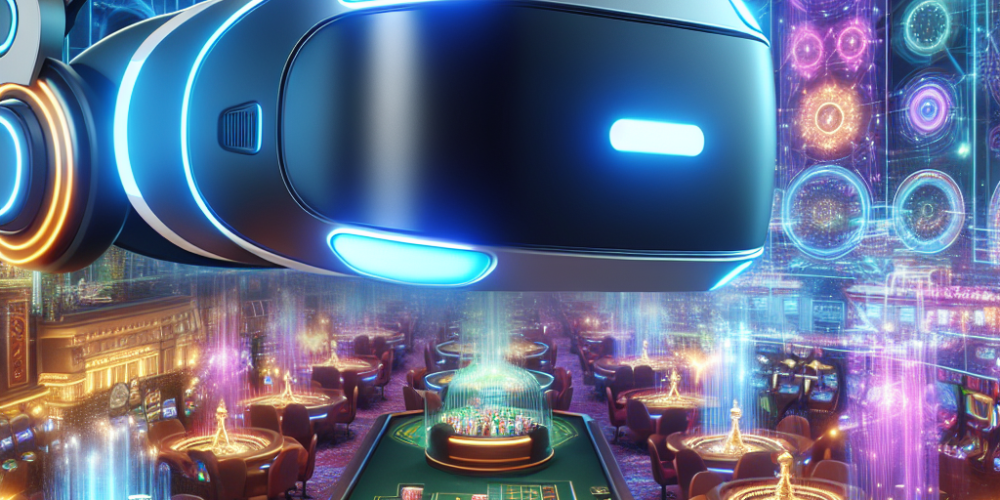The world of gaming is witnessing a revolutionary shift with the advent of virtual reality (VR) technology, creating immersive and interactive experiences across various platforms. Particularly in the casino industry, VR technology has begun transforming traditional gaming into a vibrant, multi-sensory experience. Virtual reality casinos, once a speculative idea, are now becoming an exciting reality, offering players around the globe a chance to enjoy the thrill of gambling in a completely virtual environment.
Traditional casinos have long been a staple of entertainment, drawing millions of visitors each year to cities like Las Vegas and Macau. However, the digital age has brought about significant changes, with online casinos gaining popularity due to convenience and accessibility. Now, VR casinos are set to take things a step further by offering a fully immersive experience that mirrors the excitement of a physical casino without the need to travel.
Virtual reality casinos operate by using VR headsets such as Oculus Rift, HTC Vive, or Sony PlayStation VR. These devices transport players into a fully realized casino environment where they can move around, interact with other players, and engage in games like slots, blackjack, roulette, and poker as if they were in a physical establishment. The key to VR casinos’ appeal lies in their ability to merge the social interaction and tangible fun of real-world gambling with the accessibility and innovation of online gaming.
One of the frontrunners in this burgeoning field is SlotsMillion, the first VR casino to create a real-money virtual casino room. Launched in 2015, SlotsMillion offers a vast array of VR slots games and has set a benchmark for what’s possible in this new digital arena. Players can wander a virtual casino floor and choose from over 40 different slots games, experiencing them in stunning 3D on their VR headset.
Another aspect that VR brings to the table is its potential to boost the social interaction that many online platforms lack. VR allows players to socialize in a more dynamic way than traditional online casinos; users can read body language, interact with live dealers, and communicate through voice instead of relying solely on text-based messaging. This makes gaming more engaging and creates an environment where players can enjoy an evening out at the casino, even if they are physically at home.
The benefits of VR casinos extend beyond just the user experience. For casino operators, this technology can reduce the high costs associated with running a large-scale physical establishment. VR casinos require no physical space, fewer staff members, and minimal maintenance costs. Moreover, they can draw in customers from across the globe, breaking geographical barriers that typically limit standard casinos.
However, there are challenges to overcome before VR casinos can fully mainstream. The high cost of VR equipment and the need for a robust internet connection to support high-quality graphics are barriers to universal adoption. Additionally, the regulatory landscape for virtual casinos is still evolving, with different countries having varied rules concerning online and VR gambling.
Despite these hurdles, the potential of VR casinos is undeniable. Market research suggests that the VR gambling industry will grow significantly in the coming years. According to a report by Grand View Research, the global virtual reality in gaming market size was valued at USD 11.56 billion in 2019 and is expected to grow at a compound annual growth rate (CAGR) of 30.2% from 2020 to 2027.
As technology advances and becomes more accessible, virtual reality casinos are poised to become a major player in the gaming industry. They offer an engaging blend of technology, convenience, and entertainment, promising to transform how we think about gambling and gaming. Whether you’re a seasoned gambler or a curious newcomer, the world of VR casinos offers a thrilling glimpse into the future of gaming.

David Farbacu is a seasoned writer with a passion for games, gaming, casinos, and Xbox. With a wealth of experience in the industry, David brings insightful reviews, comprehensive guides, and engaging articles that cater to both casual gamers and hardcore enthusiasts. His expertise spans across various gaming platforms and genres, making him a go-to source for the latest trends and developments in the gaming world.

